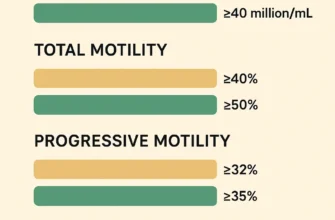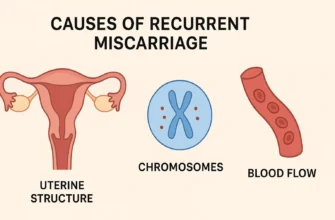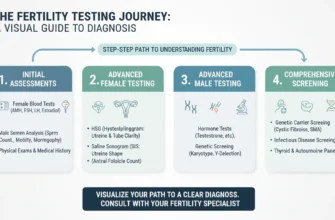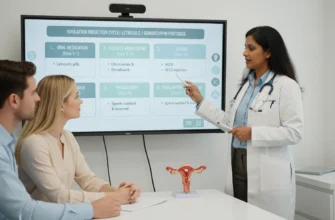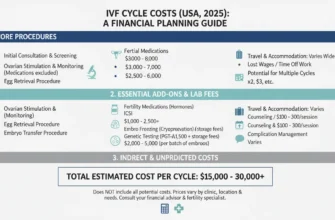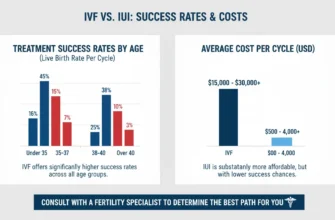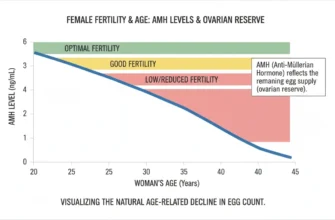Your Comprehensive Guide to Fertility Clinics in Maine: Services, Success & Support
Embarking on Your Fertility Journey in Maine
Embarking on the path to parenthood can be one of life’s most profound journeys, filled with hope and anticipation. For many in Maine, this path may include challenges that require specialized medical help. Whether you’re exploring fertility options for the first time or seeking a new clinic, this guide is designed to be a clear, practical companion. It covers common treatments, local clinics, insurance considerations, costs, emotional support resources, and practical steps to prepare for consultations.
The Dream of Parenthood: Understanding Infertility and the Path Forward
Infertility is a medical condition affecting millions, defined as the inability to achieve pregnancy after 12 months of unprotected intercourse (or 6 months if the person is 35 or older). The causes are varied and often treatable—from ovulatory disorders and male factor infertility to unexplained infertility. Modern reproductive medicine offers tools ranging from medication and intrauterine insemination (IUI) to in vitro fertilization (IVF) and advanced genetic testing.
Infertility affects approximately 10%-15% of couples globally and is one of the most common medical conditions for people between ages 20 and 45. In the United States, about 12.7% of reproductive age women seek treatment for infertility annually. The good news is that approximately 85% of infertile couples have an identifiable cause, and the majority can achieve pregnancy with appropriate treatment.
Why a Local Guide Matters: Navigating Fertility Care in Maine
Choosing to pursue fertility treatment is a significant decision. Proximity to clinics, insurance networks, state laws, and available support services all shape the experience. Maine has made significant progress in recent years with the passage of fertility insurance mandate legislation in 2022, which took effect on January 1, 2024. This important development means that insurers in Maine must now provide coverage for fertility treatment, including IVF, if the plan provides pregnancy-related benefits—a crucial change for accessibility.
This guide helps you compare local offerings, identify clinics with experience in specific treatments (e.g., donor egg cycles, same-sex family building), and prepare the right questions to ask.
Understanding Fertility Care: Your First Steps Towards Diagnosis
The path to a fertility diagnosis is a structured process, starting with history-taking and targeted tests:
-
Medical history & physical exam: Documentation of menstrual patterns, prior pregnancies, surgical history, and lifestyle factors
-
Hormone blood tests: AMH (Anti-Müllerian Hormone), FSH (Follicle-Stimulating Hormone), LH (Luteinizing Hormone), prolactin, and TSH (Thyroid-Stimulating Hormone) to assess ovarian reserve and reproductive hormone levels
-
Semen analysis for partners producing sperm to evaluate sperm count, motility, and morphology
-
Ovulation tracking and cycle monitoring: Basal body temperature charting, ovulation predictor kits, or ultrasound-based monitoring
-
Imaging such as transvaginal ultrasound to evaluate ovarian and uterine structures, and hysterosalpingogram (HSG) to assess fallopian tube patency
A clear diagnosis replaces uncertainty with a personalized treatment plan. For women aged 35 and older, this evaluation should begin after 6 months of trying to conceive; for younger women, after 12 months.
Common Treatments Explained
Ovulation Induction
Oral medications (clomiphene citrate, letrozole) or injectable gonadotropins are used to stimulate ovulation. This approach is often a first-line treatment for ovulatory dysfunction and may be combined with timed intercourse or IUI.
IUI (Intrauterine Insemination)
Sperm is processed (washed and concentrated) and placed directly into the uterus around ovulation to increase the chances of fertilization. IUI is commonly used for male factor infertility, unexplained infertility, or in conjunction with ovulation induction.
IVF (In Vitro Fertilization)
Eggs are retrieved from the ovaries, fertilized in the laboratory, and resulting embryos are transferred to the uterus. IVF can be used for multiple causes of infertility, enables advanced testing of embryos, and allows for donor gamete cycles. IVF success rates vary significantly by age: women under 35 have live birth rates of approximately 40-55% per transfer, while rates decline to 26.8% for ages 38-40 and approximately 7% for women over 40 when using their own eggs.
ICSI (Intracytoplasmic Sperm Injection)
A single sperm is injected directly into an egg during IVF to overcome severe male-factor infertility, including low sperm count, poor motility, or abnormal morphology.
PGT (Preimplantation Genetic Testing)
Embryos can be screened for chromosomal abnormalities (PGT-A) or specific genetic conditions (PGT-M) before transfer. This technology reduces the risk of miscarriage and genetic disorders and is increasingly used in fertility treatment.
Frozen Embryo Transfer (FET)
Previously cryopreserved embryos are thawed and transferred to the uterus. FET allows for more flexible timing and may improve outcomes by allowing the uterus to fully recover from ovarian stimulation.
Costs, Insurance & Access in Maine
Important Recent Development: Maine Insurance Mandate
Maine’s fertility insurance law (L.D. 1539), signed in 2022 and effective January 1, 2024, represents a major milestone for fertility care access in the state. Under this mandate, health insurance carriers must provide coverage for:
-
Fertility diagnostic care
-
Fertility treatment (including IVF, IUI, and ovulation induction)
-
Fertility preservation services
The law applies to all insurance carriers offering plans in Maine and protects individuals regardless of family composition, relationship status, sexual orientation, or gender identity. However, the specific extent of coverage (e.g., number of cycles, lifetime benefits) is not defined in the mandate, so it’s essential to verify your specific plan’s coverage details with your insurance provider.
Cost Considerations
-
IVF cycle costs typically range from $12,000 to $15,000 or more, depending on location and complexity
-
Many clinics offer financing plans and package pricing for multiple IVF cycles, which may reduce per-cycle costs
-
Additional services such as PGT, ICSI, donor egg coordination, and egg/sperm freezing carry extra fees
-
Medication costs for ovarian stimulation can range from $3,000 to $5,000 per cycle
Insurance Verification Steps
-
Contact your insurance provider to confirm fertility coverage limits and requirements
-
Ask clinics for detailed itemized estimates
-
Discuss financing options with clinic financial counselors
-
Inquire about employer-based fertility benefits (some employers supplement state mandates)
Emotional Support, Counseling & Local Resources
Fertility treatment can be emotionally intense. The stress of medical appointments, financial pressure, hormonal changes, and the hope-disappointment cycle can impact mental health, relationships, and work.
Look for clinics offering:
-
Individual counseling with mental health providers trained in reproductive psychology
-
Support groups or partnerships with peer support organizations
-
Written materials and educational resources about emotional aspects of fertility treatment
-
Referrals to fertility-specific therapists
RESOLVE New England is the primary regional support organization, offering:
-
20+ free peer support groups monthly covering diverse topics including IVF, IUI, donor options, male factor infertility, recurrent miscarriage, and surrogacy
-
Virtual support groups covering 13+ different fertility and family-building topics, open to anyone regardless of geographic location
-
Annual conference with expert speakers and educational sessions
-
Online directory of fertility professionals in the region
Attending a support group can reduce isolation, normalize your experience, and connect you with others who truly understand your journey.
Clinics & Resources in Maine
Boston IVF – The Portland, Maine Fertility Center
Location: 778 Main Street, Suite 2, South Portland, ME
Phone: Contact through website
Services: Full-spectrum fertility care including IVF, IUI, ovulation induction, consultations, bloodwork, ultrasound monitoring, and access to advanced procedures
Background: Boston IVF has served as Maine’s sole provider of IVF for over 15 years and is part of one of the nation’s largest fertility networks, with nearly 30 centers across the Eastern United States. The Portland location provides convenient local access to reproductive care with advanced laboratory facilities.
Insurance: Participates with most major insurance plans, accepts Maine fertility insurance mandate coverage
Fertility Centers of New England – Falmouth, Maine
Location: 202 US Route 1, Suite 202, Falmouth, ME 04105
Phone: 1-877-326-3483
Website: fertilitycenter.com
Services: Initial consultations, bloodwork, ultrasound cycle monitoring, and coordination for advanced treatments
Special Programs: IVF Assist program for self-pay patients offering comprehensive and affordable IVF options; exclusive pricing for patients without infertility insurance coverage
Physician: Dr. Joseph A. Hill, with 37+ years of experience caring for patients throughout New England
Facilities: Monitoring services located on-site with early morning appointment availability
Insurance: Offers flexible payment plans; works with insurance carriers regarding the Maine fertility mandate
Coastal Women’s Healthcare – Scarborough, Maine
Location: 71 US Route 1, Suite A, Scarborough, ME 04074
Phone: 207-885-8400
Website: coastalwhc.com
Services: Diagnostic testing and imaging, laparoscopic surgery, ovulation induction, IUI with partner or donor sperm, fertility consultations
Partnership: Long-standing partnership with Boston IVF for access to IVF, egg/sperm freezing, and preimplantation genetic screening
Specialties: Care for complex reproductive issues including endometriosis and PCOS; recurrent miscarriage evaluation
Service Area: Serves Southern Maine including Portland, South Portland, Yarmouth, Cape Elizabeth, Cumberland, Saco, and surrounding areas
Clinical Excellence: Recognized among Maine’s lowest-cost providers for women’s healthcare while maintaining high quality standards
Rocky Coast Integrated Medicine – Portland, Maine (Holistic Fertility Focus)
Location: 491 Stevens Ave, Portland, ME
Phone: 207-775-2059
Website: rockycoastacupuncture.com
Services: Fertility acupuncture, Traditional Chinese Medicine (TCM), herbal medicine, nutritional guidance, functional medicine, and telemedicine consultations
Specialization: Holistic fertility support with 20+ years of experience; specializes in natural conception support and IVF/ART support protocols
Key Practitioners: Co-founded by Beth Herzig and Jason Stein, both skilled acupuncturists specializing in infertility
Approach: Personalized treatment plans addressing underlying health factors; recognized by reproductive endocrinologists as enhancing IVF success when combined with Western medical treatment
Unique Feature: Offers free 15-minute consultation calls with fertility specialists
Note: Rocky Coast is not an IVF clinic but complements medical fertility treatment with evidence-based holistic approaches
RESOLVE New England
Organization: Independent, progressive 501(c)(3) non-profit
Based in: Waltham, Massachusetts
Services:
-
Free peer-led support groups (20+ monthly)
-
Virtual support groups (open nationwide)
-
Annual fertility conference
-
Online provider directory
-
Educational resources and advocacy
Website: resolvenewengland.org
Legal & Ethical Considerations
Donor Gametes & Surrogacy: If considering donor egg, donor sperm, or surrogacy, it’s essential to work with a fertility attorney familiar with assisted reproduction law. Legal requirements vary by state and even within Maine, particularly regarding:
-
Parental rights and legal documentation
-
Informed consent and compensation
-
Screening and counseling requirements for donors
Embryo Storage & Disposition: Clarify clinic policies regarding:
-
Duration of embryo storage
-
Annual storage fees
-
What happens to frozen embryos if you discontinue treatment
-
Your wishes for disposition if you become unable to make decisions
Same-Sex Couples & Single Parents: Maine’s fertility insurance mandate explicitly prohibits discrimination based on sexual orientation, gender identity, family composition, or marital status. All Maine clinics must provide equal access to fertility services regardless of these factors.
Research & Clinical Trials: Ask clinics if they participate in fertility research or clinical trials. Participation may offer access to novel treatments or reduced costs, though you should carefully review informed consent and potential risks.
Questions to Ask a Clinic
About Success Rates
-
What are your live-birth rates by age and diagnosis?
-
Can you provide clinic-specific SART or CDC reports?
-
How do your success rates compare to national averages?
-
Do you track cumulative success rates (multiple transfers from one retrieval)?
About Treatment Protocols
-
What does your IVF package include? (medications, monitoring, cryopreservation, embryo transfer)
-
Which ovarian stimulation protocols do you use?
-
Do you offer mini-IVF or natural cycle IVF?
-
What are your embryo transfer practices (single vs. multiple)?
About Additional Services
-
Do you offer PGT, and what is the additional cost?
-
Do you offer ICSI, and when do you recommend it?
-
Can you coordinate donor egg, donor sperm, or embryo donor cycles?
-
What are costs for frozen embryo transfer (FET)?
-
Do you offer egg or sperm freezing?
About Your Team
-
Who are the attending reproductive endocrinologists?
-
What is your nursing staff’s experience level?
-
Do you have a dedicated financial counselor?
-
What mental health support do you provide?
About Logistics & Communication
-
What are your office hours? (Early morning availability is important for monitoring)
-
How accessible is the clinic for emergency situations?
-
How do you communicate results and next steps?
-
What is the average wait time for appointments?
About Outcomes & Safety
-
What are your infection rates and complication rates?
-
How do you handle cycle cancellations?
-
What is your laboratory accreditation status (CAP or JACHO)?
-
What percentage of retrieved eggs successfully fertilize?
Preparing for Your First Visit
Bring to Your Appointment
-
Insurance card and ID
-
Medical history summary (surgeries, medications, allergies, family history)
-
Previous test results and medical records (blood work, ultrasounds, semen analyses)
-
List of current medications and supplements
-
Basal body temperature charts or ovulation tracking records (if available)
-
A timeline of any prior pregnancies, miscarriages, or ectopic pregnancies
-
Questions written down in advance
Mental Preparation
-
Plan time off work if needed; appointments can be emotionally and mentally taxing
-
Have your partner or support person present if desired
-
Consider your comfort level discussing personal reproductive history
-
Know what information you want to gather before deciding on treatment
Financial Preparation
-
Verify insurance coverage before your appointment
-
Ask about payment plans and financing options
-
Request itemized cost estimates
-
Ask whether any testing or initial consultations have reduced costs
Practical Tips for Maximizing Success
Optimize Lifestyle Factors Before Treatment
-
Avoid smoking: Smoking damages egg and sperm quality and reduces IVF success rates
-
Maintain a healthy BMI: Both underweight and overweight status can impair fertility
-
Limit caffeine: Some studies suggest high caffeine intake may reduce fertility
-
Manage stress: Consider yoga, meditation, counseling, or support groups
-
Regular exercise: 30 minutes of moderate activity most days supports reproductive health
-
Healthy diet: Focus on whole foods, vegetables, lean proteins, and omega-3 fatty acids
Nutritional Support
-
Folic acid supplementation (400-800 mcg daily) should begin before conception attempts
-
Prenatal vitamins containing methylfolate, B vitamins, and antioxidants may support egg and sperm quality
-
Coenzyme Q10 may improve egg quality, particularly in women over 35
-
DHEA may be recommended by your doctor in cases of diminished ovarian reserve
-
Inositol (myo-inositol and D-chiro-inositol) may help regulate ovulation, particularly in PCOS
During Treatment Cycles
-
Keep all appointments for bloodwork and ultrasound monitoring
-
Take medications at consistent times each day
-
Avoid activities that could traumatize the ovaries (vigorous exercise, heavy lifting)
-
Stay hydrated and maintain good nutrition
-
Limit vaginal infections (avoid douches, use gentle products)
-
Avoid intercourse during ovarian stimulation to prevent ovarian torsion
Age & Treatment Decisions
-
If under 35: You may have time to try less invasive treatments (ovulation induction, IUI) before progressing to IVF
-
If 35-40: Time becomes more relevant; more aggressive treatment plans may be recommended
-
If over 40: Your doctor may recommend proceeding directly to IVF or considering donor egg options
Glossary of Common Terms
AMH (Anti-Müllerian Hormone): A blood test marker of ovarian reserve indicating how many eggs remain in the ovaries
Aneuploid: Embryos with abnormal chromosome numbers; the most common cause of miscarriage and age-related infertility
ART (Assisted Reproductive Technology): Medical procedures used to achieve conception, including IVF, IUI, and gamete intrafallopian transfer (GIFT)
Blastocyst: An embryo at 5-6 days after fertilization with differentiated cell types, the optimal stage for transfer or freezing
Cryopreservation: The process of freezing embryos, sperm, or eggs for future use
Follicle: A fluid-filled sac in the ovary containing an immature egg
FSH (Follicle-Stimulating Hormone): A pituitary hormone that stimulates ovarian follicle development and egg maturation
Gametes: Reproductive cells—eggs (oocytes) or sperm
GIFT (Gamete Intrafallopian Transfer): A procedure where eggs and sperm are placed into the fallopian tube; now rarely used due to IVF’s higher success rates
ICSI: Intracytoplasmic sperm injection; injection of a single sperm into an egg during IVF for severe male factor infertility
IUI: Intrauterine insemination; placement of processed sperm directly into the uterus near ovulation
IVF: In vitro fertilization; fertilization of eggs outside the body in a laboratory, with embryo transfer into the uterus
LH (Luteinizing Hormone): A pituitary hormone that triggers ovulation
Morphology: The shape and structure of sperm; abnormal morphology is associated with fertility challenges
Oocyte: An egg cell at any stage of development
Ovarian Hyperstimulation Syndrome (OHSS): A potential complication of ovarian stimulation causing bloating, pain, and rarely, serious complications
Ovarian Reserve: The number and quality of eggs remaining in the ovaries
PGT: Preimplantation genetic testing; screening of embryos for chromosomal abnormalities (PGT-A) or specific gene mutations (PGT-M)
Prolactin: A hormone produced by the pituitary gland; elevated levels can inhibit ovulation
Semen Analysis: A test evaluating sperm count, motility (movement), and morphology (shape)
TSH (Thyroid-Stimulating Hormone): A pituitary hormone that regulates thyroid function; thyroid disorders can impair fertility
ZIFT (Zygote Intrafallopian Transfer): Transfer of a fertilized egg into the fallopian tube; rarely used today
Scheduling Your First Appointment and Accessing Help
The path to building your family starts with a single action. Here’s how to proceed:
Steps to Schedule Your First Consultation
-
Contact clinics directly using the phone numbers and websites listed in this guide
-
Prepare your medical history: Have prior test results, medications, and timeline ready
-
Ask about consultation options: Some clinics offer virtual consultations or nurse consultations before in-person visits
-
Request itemized estimates for the initial consultation and potential treatment cycles
-
Inquire about financial counseling: Many clinics offer free or reduced-cost initial financial consultations
What to Expect at Your First Appointment
-
Detailed reproductive history intake (30-60 minutes)
-
Discussion of test results and previous treatments
-
Physical examination (typically including pelvic ultrasound)
-
Review of treatment options and recommendations
-
Discussion of success rates specific to your situation
-
Financial counseling regarding costs and insurance coverage
-
Planning of next steps (testing, referrals, or treatment initiation)
Maine Fertility Clinic Contact Information
| Clinic | Location | Phone | Website |
|---|---|---|---|
| Boston IVF – Portland | 778 Main Street, Suite 2, South Portland, ME | Contact via website | bostonivf.com |
| Fertility Centers of New England – Falmouth | 202 US Route 1, Suite 202, Falmouth, ME 04105 | 1-877-326-3483 | fertilitycenter.com |
| Coastal Women’s Healthcare – Scarborough | 71 US Route 1, Suite A, Scarborough, ME 04074 | 207-885-8400 | coastalwhc.com |
| Rocky Coast Integrated Medicine – Portland | 491 Stevens Ave, Portland, ME | 207-775-2059 | rockycoastacupuncture.com |
| RESOLVE New England – Support & Resources | Waltham, MA (serves New England region) | Check website for support group schedules | resolvenewengland.org |
Additional Resources
-
American Society for Reproductive Medicine (ASRM): asrm.org – Patient resources, fact sheets, and provider directory
-
CDC National ART Surveillance System: cdc.gov/art – Search clinic-specific success rates
-
SART (Society for Assisted Reproductive Technology): sart.org – Clinic success data and professional guidelines
-
National Infertility Association (RESOLVE): resolve.org – Comprehensive infertility information and support
-
Maine Bureau of Insurance: maine.gov/insurance – Information about fertility insurance mandate compliance (Bulletin 476)
Remember
Your fertility journey is unique, and the right clinic and team will be those who listen, explain options clearly, commit to helping you achieve your family-building goals, and treat you with compassion throughout the process. Maine now offers robust insurance coverage for fertility care and increasing access to diverse treatment options. Don’t hesitate to reach out, ask questions, and seek the support you deserve.
Article Updates & Corrections Summary
Major Updates in This Version:
-
Maine Insurance Mandate (2024): Updated to reflect that Maine now REQUIRES fertility insurance coverage effective January 1, 2024, replacing the outdated statement about “historically limited mandates”
-
Enhanced Clinic Information: Added specific details about clinic specialties, partnerships, and available services based on current provider information
-
Success Rates: Included current IVF success rate data by age based on 2024 research and SART/CDC reporting standards
-
Rocky Coast Fertility Details: Clarified location (491 Stevens Ave, not “Portland area”), added founders’ names, and contextualized as holistic support (not full-service fertility clinic)
-
Expanded Legal Section: Added information about Maine’s non-discrimination protections for LGBTQ+ individuals and single parents per the 2024 fertility law
-
Enhanced Glossary: Expanded from minimal definitions to comprehensive fertility terminology useful for patients
-
Contact Information Table: Added organized contact information for easy reference
-
Additional Resources: Included links to ASRM, CDC, Maine Bureau of Insurance, and other helpful organizations
-
Lifestyle & Nutritional Guidance: Expanded practical tips with evidence-based recommendations for optimizing fertility
-
Insurance Verification Steps: Added specific guidance for verifying coverage under the new Maine mandate
This guide was fact-checked and updated on October 30, 2025, and reflects current clinic information, insurance law changes, and evidence-based fertility care recommendations. Patients should verify all clinic information and coverage details directly with providers and insurance carriers, as details may change.



